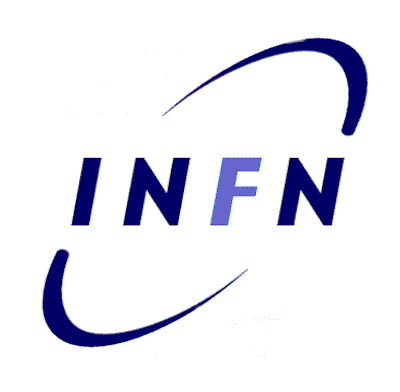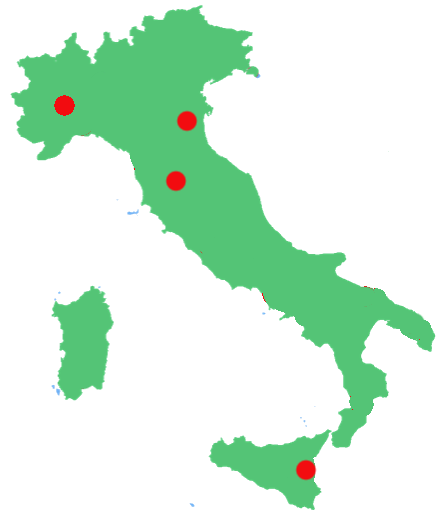Scientific activities of the various Research Units
Firenze
-
Recent research work carried out in Florence:
- Study of freeze-out conditions in relativistic heavy ion collisions: we used a hybrid model matching hydrodynamical evolution to hadronic kinetic processes to assess the impact of hadronic rescattering (afterburning) in modifying the hadronization conditions at the critical temperature extracted with statistical model fits.
- Derivation of the relation between vorticity and polarization in relativistic hydrodynamics.
- Development and release of a numerical code for relativistic heavy ion collisions (ECHO-QGP)
- Theoretical relativistic hydrodynamics: study of the general conditions of local thermodynamical equilibrium in a quantum relativistic fluid introducing a new frame called beta frame
Ferrara
-
The main activities of the Group of Ferrara concerned the study of dense hadronic
matter produced in heavy ions collisions and composing the core of neutron stars.
In particular:
- Heavy ions: within the ECHO-QGP project aiming at describing the process of heavy ion collisions by use of hydrodynamics, we have worked on the problem of particlizations at the freeze-out.
- We have studied the conversion of neutron stars into quark stars by use of an hydrodynamics code for the neutrino diffusion process. In this way, we could compute the signal emitted by the newly born quark star.
- We have included in the equation of state of hadronic matter at finite density the Delta isobars.
LNS - Catania
- Study of the correction to ideal hydrodynamics due to finite viscosity by means of a transport code at fixed shear viscosity, in particular the correction to the distribution function, its dependence on the transverse momentum and consequences on the different anisotropic flow harmonics.
- Study of the connection between the shear viscosity to entropy density ratio, eta/s, and the electric conductivity, sigma_el, both analytically and numerically with a transport code.
- Study of the approximations involved by Langevin equation by means of a direct comparison with the full collisional integral within the framework of Boltzmann transport equation, for describing the propagation of heavy quarks in the QGP.
Torino
-
The activity of Torino group concernes several topics:
- Heavy-quark Langevin dynamics in the QGP, with heavy-quark hadronization in the presence of a medium of light thermal partons. Comparison with experimental data of pp and AA collisions at RHIC and LHC.
- A relativistic viscous hydrodynamical code for heavy-ion collisions (in collaboration with Firenze and Ferrara).
- Fluctuations of conserved charges on the lattice and equation of state for QCD thermodynamics; fluctuations of conserved charges in a Hadron Resonance Gas Model.
- Equation of state at finite temperature and baryon chemical potential, application to the physics of neutron stars.
- Survival of Bc mesons in a hot plasma within a potential model.
^ Back to Top


